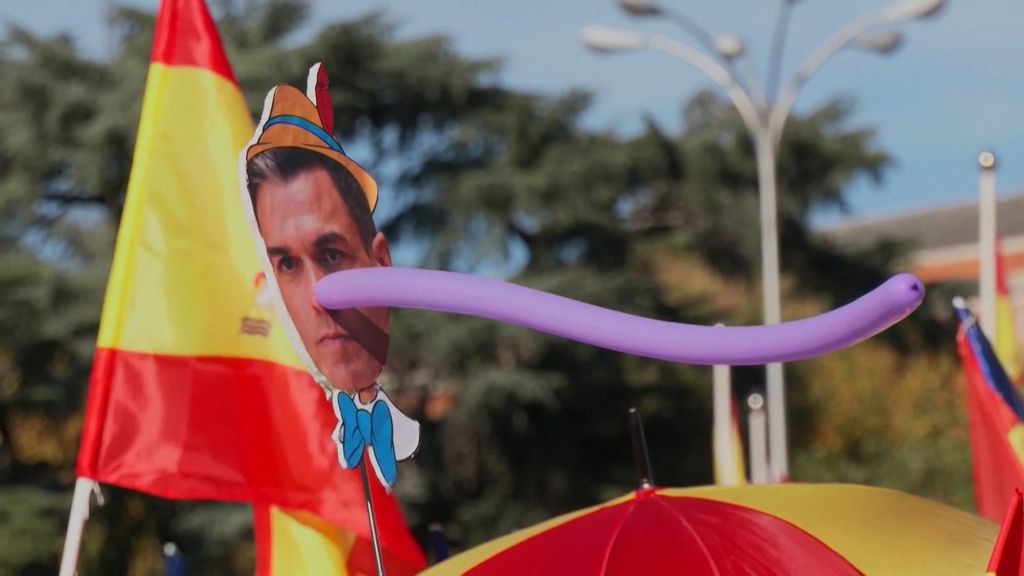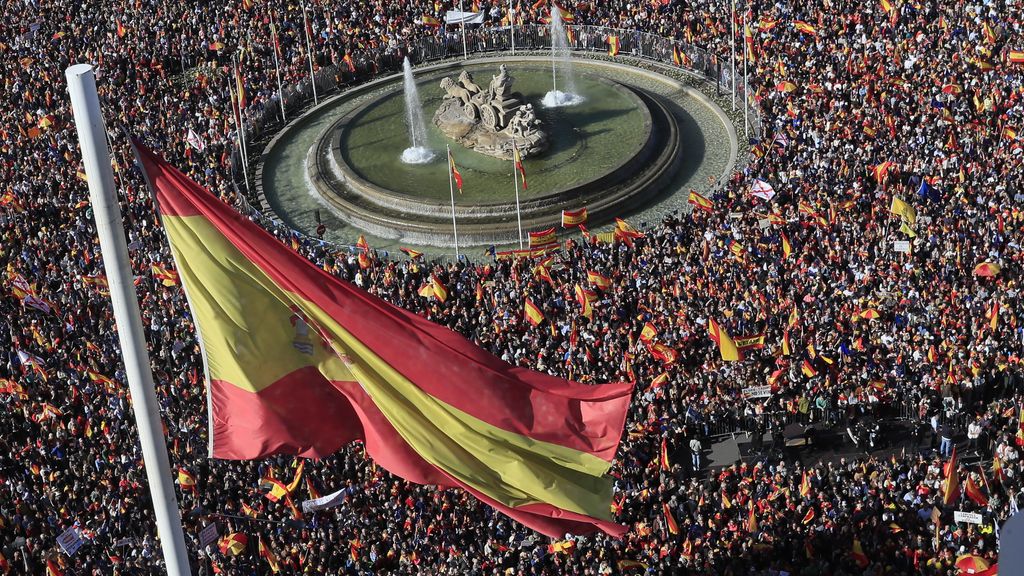Noos News••an average
In Madrid, 170,000 people took to the streets in a protest march against the controversial amnesty law that Socialist Prime Minister Sanchez agreed with the Catalan separatist parties.
The demonstrators raised banners reading “Sanchez is a traitor” and “Do not sell Spain” and waved Spanish flags, protesting against the law, which they say threatens the rule of law and the separation of powers.
The demonstrators turned en masse against Prime Minister Sánchez:

Spaniards take to the streets en masse against Catalonia’s amnesty law
This demonstration is the largest in a series of protests against the law in cities across the country. Alberto Nuñez Viejo, leader of the conservative Popular Party, and Santiago Abascal, leader of the radical right-wing Vox party, also attended the march organized by citizens’ groups.
After the demonstration in the center of the capital, dozens of demonstrators headed to Moncloa Palace, the Prime Minister’s residence. As far as we know, the demonstration passed peacefully.
Illegal actions
Sánchez was granted a third term of four years in exchange for his approval of the amnesty law. Catalan party leader Carles Puigdemont had demanded an amnesty for himself and other separatists as a price for supporting the government. They are being tried in Spain for their role in the illegal referendum held in 2017 on Catalan independence. Some of them have already been convicted.
The intention is that the amnesty will apply to all criminal offenses since 2012 that relate to the actions of the separatist movement. Parliament must approve the law. The agreed amnesty applies to about 400 people who broke the law during the struggle for independence.
Sanchez defended the law, saying the amnesty would help defuse tensions in Catalonia. But much of the country is against the law. Opponents fear that if the separatists receive amnesty, they will eventually fight for Catalan independence again.
Sánchez is also accused of wanting to continue ruling at any cost, which is why he entered into an agreement with the Catalan parties Junts per Catalunya and Esquerra Republica de Catalunya (ERC), both of which support secession from Catalonia.
Enough seating
In Spain, a new government had to be formed after last summer’s elections, which Sanchez lost. The right-wing conservative party, the Popular Party, emerged as the winner, but this party was unable to form a coalition. As a result, the ball ended up in Sanchez’s hands.
He had to contact Junts and ERC to get enough seats. White smoke rose on Thursday, and on Friday, Sanchez was officially sworn in before the king.








